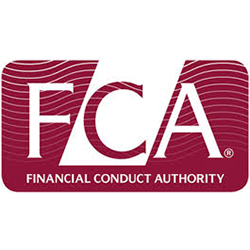Compliance
UK’s Financial Regulator Fines GAM, Former Fund Manager

The saga highlighted how rapidly a listed fund management business can be hit by the woes of a flagship fund or set of funds.
The UK’s Financial Conduct Authority has fined Swiss asset manager GAM International Management and its former fund manager Timothy Haywood. The regulator also issued warning notices.
The FCA fined the firm £9.1 million ($12.1 million) and Haywood £230,037 for conflicts of interest and gifts and entertainment matters. Haywood formerly headed up GAM’s now sold-off Absolute Return Bond Fund unit.
As GAM and Haywood agreed to resolve all issues of fact and liability, they qualified for a 30 per cent discount. The financial penalties would have been £13 million and £319,044 respectively, had they not agreed to resolve the case, the financial watchdog said in a statement yesterday.
The FCA published warning statements, numbered 21/5 and 21/6, about both the firm and Haywood. In GAM’s warning notice, the FCA said that the firm had “failed to conduct its business with due care, skill and diligence” between 28 November 2014 and 25 October 2017. This was in breach of principle 2 of the FCA’s principles for business.
“The FCA considers that GIML failed to ensure that its systems and controls for the identification, management and prevention of conflicts of interest operated effectively during this period,” it said. Between 20 October 2016 and 8 March 2018, GIML breached principle 8 by failing to manage conflicts of interest fairly between itself and its customers and different customers, the regulator said.
In Haywood’s notice, the watchdog said: “The FCA considers that between 20 October 2016 and 3 November 2017, Mr Haywood breached statement of principle 7. When performing an accountable significant-influence function at GAM International Management Limited, he failed to take reasonable steps to ensure that the business of the firm for which he was responsible, complied with the relevant regulatory rules requiring that conflicts of interest were managed fairly. This breach arose from two investments made by the GIML Absolute Return and Long-Only team during this period.”
The Swiss firm has been continuing to recover this year, announcing in August that its group assets under management rose to SFr126.0 billion ($139.4 billion) as of 30 June, up from SFr122.0 billion at the end of last year.
“We fully accept the findings of the FCA and acknowledge the conflicts of interest shortcomings which occurred at the firm between late 2014 and early 2018,” Peter Sanderson, GAM’s chief executive, said in a statement. “Since then we have significantly strengthened our senior management team, governance, control frameworks, policies and training to ensure that all lessons learned from that period are fully embedded into our firm and culture.”
“Our priority has always been, and remains, protecting the best
interests of our clients. I am pleased that, after the ARBF funds
were put into liquidation in 2018, we were able to return on
average, more than 100 per cent of their value to our
clients. With all regulatory matters now concluded, we are
looking forward and are focused on our strategy of bringing GAM
back to growth,” Sanderson added.
Exodus
Following Haywood’s dismissal in 2018, investors fled
his Absolute Return Bond Fund. Haywood was later
dismissed by the firm for misconduct. His dismissal sent GAM's
shares tumbling and as the asset manager struggled to contain
heavy outflows of client money, GAM Holding chief executive Alex
Friedman, who had been a senior figure at UBS, resigned. The
story highlighted how rapidly a listed fund management
business can be hit by the woes of a flagship fund or set of
funds.
"I am truly sorry for the mistakes that I have made and I have learnt a series of very important lessons," Haywood said in a statement this week. "I now look forward to returning to an active role in the industry and will make my plans public in due course."
The saga revolved around Haywood’s buying illiquid debt linked to UK metals tycoon Sanjeev Gupta and Australian financier Lex Greensill, the now disgraced Australian financier. Greensill's supply chain finance business collapsed in 2021, hitting funds managed by groups such as Credit Suisse.